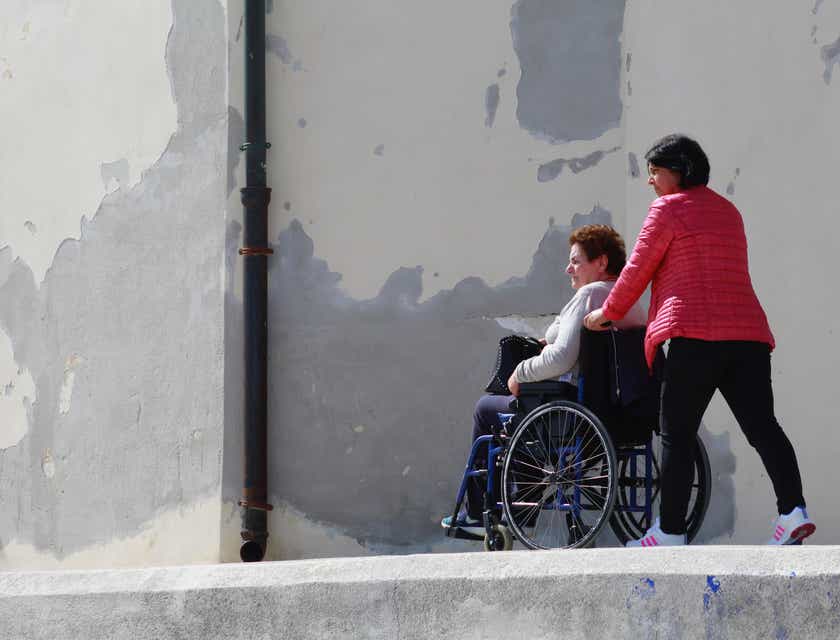Last month I read the USA Today story about Lee Wachtstetter, an 86-year-old Florida widow who sold her Fort Lauderdale home (and acreage) and to live a “stress-free, fairy-tale life” aboard Crystal Cruise Line’s 11-year-old ship, Crystal Serenity.
Retiring as a permanent resident on a luxury cruise ship isn’t cheap. “Mama Lee” estimates she pays $164,000 per year, or about $450 per day, for her lifestyle. That cost includes her single occupancy stateroom, all meals (and the ubiquitous buffets,) beverages, gratuities, housekeeping, cocktail parties, movies, lectures, Broadway-type shows, and her favorite, nightly ballroom dancing — not to mention travelling to every city around the world that has a port. As long as Ms. Lee doesn’t become acutely ill or need special medical attention, which can get pricey on-board, cruise ship retirement seems like a pretty glamorous and exotic way to live out one’s golden years.
Or is it?
The Straight Dope’s Cecil Adams tackled this topic in a June 2012 article and compares cruise ship retirement with luxury hotel retirement, except the retiree gets to travel the world instead of being stuck in one place. Temperate climates and nightly sunsets on a vast horizon make cruise ship retirement sound like a better alternative to staid assisted living, but only if the senior is in the best of health and doesn’t mind traveling light. Ship staterooms can be cramped, especially when one is on a budget. Sleeping quarters aside, the entire ship and all its amenities are at your service.
While the employee-to-guest ratio is generally higher on a ship than the staff-to-resident ratio in most assisted living communities, those employees aren’t as likely to be trained for the special needs presented by older adults. And sure, the amenities are great, but if the ship breaks out in norovirus, as happened twice recently on Royal Caribbean’s cruise line, those with compromised immune systems, such as the elderly, would be hardest hit. And there’s nowhere to run (no pun intended.)
While a long-term passenger might miss family and friends, how many receive sporadic visits, at best, when they reside in assisted living facilities? As seniors become more comfortable with technology, they can keep in touch through Facebook and email. Right now, video bandwidth is limited; most ships block or limit Skype. For face-to-face visits, onshore connections using free Wi-Fi in port with a smartphone may be the best route.
But what about the actual dollar cost? In 2004, geriatrics doctors Lee Lindquist and Robert Golub published an article in the Journal of the American Geriatrics Society which showed that cruises were priced similarly to assisted living centers could accommodate the needs of seniors and possibly provide a more desirable option to seniors for retirement. In their hypothetical, an 80-year old woman, for example would pay $228,075 in an assisted-living facility compared to $230,497 on a cruise ship over a 20-year time span.
More recently, however, Genworth’s Cost of Care Survey listed Washington, D.C. as the most costly spot for assisted living, with an annual median cost of about $82,600 for a single-occupancy unit. Assisted living costs usually cover room and board, basic utilities (electricity, heat, water, and garbage), basic housekeeping (fresh linens) and some meals, significantly less than the price tag for Ms. Wachtstetter’s cruise ship retirement lifestyle. It’s difficult to compare apples-to-apples, but it seems only like the least expensive cruise costs might be similar to a highest-end assisted living community.
Have you or a family member ever thought of cruise ship retirement as a viable option? I’d love to hear from assisted living community and cruise ship directors alike as to why theirs is the best retirement option. Or if you happen to read this while on an extended cruise, let us know what that’s like. As for me, I think I’d like to summer on land and winter at sea, as long as I can have access to the helipad for quick escapes from either.
Main Menu
Main Menu
Main Menu







